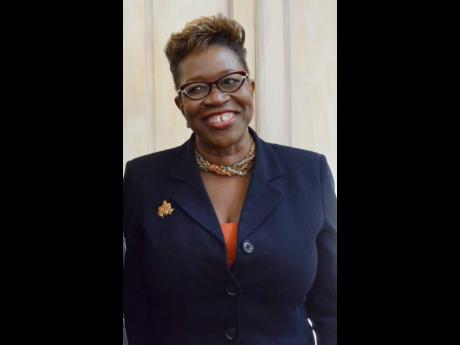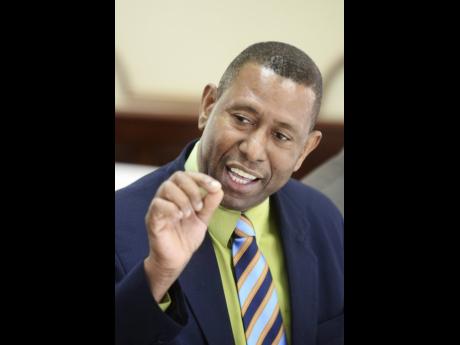DPP: I take responsibility for not following up
Director of Public Prosecutions (DPP) Paula Llewellyn says she takes responsibility for not following up on warning notices that were issued to the members of parliament who were fingered in breach of the Integrity Act for failure to declare income, assets and liabilities within the required time between 2014 and 2016.
“Upon being made aware of the Gleaner report dated March 6, 2019, an extensive audit was conducted in relation to these matters and it was determined that the relevant warning notices had, in fact, been prepared and sent out in respect of these files.
“However, our records do not reflect any follow-up being done upon the expiration of the warning notices,” stated Llewellyn.
The country’s chief prosecutor said that she regreted that follow-up work was neglected, adding that corruption-prevention issues were very important matters deserving of “our expertise and attention”.
“With the high volume of substantive criminal matters we face every day numbering in the thousands, ranging in complexity to include very serious indictable matters such as murders, spanning all the Circuit Courts islandwide, and matters in the Court of Appeal, regrettably, the follow-up work was not done.
“This was an oversight by my office for which I take full responsibility. Some senior members of the legal staff are active in at least four to five units, and all members of the legal staff are active in multiple units, processing requests and rulings while also dealing with their substantive court fixtures,” the DPP said.
A March 6, 2019 Gleaner article published under the headline: ‘Lawmakers, lawbreakers! Legislators referred to DPP for breaches’, disclosed that over three calendar years, starting in 2014, 16 current and former lawmakers from the two main political parties were reported to the nation’s top prosecutor for failing to declare income, assets and liabilities within the required time.
Among those reported to the DPP for “necessary action” over the three-year period were former energy minister Clive Mullings, former PNP junior ministers Arnaldo Brown and Sharon Ffolkes-Abrahams, as well as former JLP Senator Arthur Williams.
She said that with the advent of The Integrity Commission Act of 2017, there have been increased powers of the commission. These include not only the detection and investigation of these offences, but also the power to prosecute such matters themselves, while adding that her office has not received any referrals from the Integrity Commission since 2017.
“Nevertheless, the Office of the DPP is committed to offering assistance to the director of corruption prosecutions, at his request, as there is no bar to prosecution of these offences being initiated at this time, if it is deemed appropriate so to do,” she said.
Breach of integrity law easy to prosecute – Wildman
Senior attorney-at-law Hugh Wildman has said that cases such as the ones dealing with breaching the Integrity Act are simple to prosecute, as these do not require heavy evidentiary or investigation for court proceedings.
“The question is one of priority for the DPP’s office, because those are not complex matters requiring a drawn-out prosecution. They are fairly simple matters to be dealt with, so even in relation to staff complement, I do not see that as an inhibiting factor,” said Wildman.
He also said that in relation to those matters, once their rulings are given, they are dealt with at the Parish Court.
“So the Office of the DPP doesn’t have to even prosecute those matters, they can instruct the clerk of court to prosecute. So, to me, it seems to be a case of priority,” he said.
Meanwhile, noted attorney-at-law Gordon Robinson describes the failure as “another prime example of bureaucracy trumping good governance”.
“You would think the [Integrity] Commission would have sent reminders and warning letters before referring the breach for prosecution. Government corruption is a fundamental crime against an entire society and should receive no preferential treatment,” he said.
He said that this emphasises the need for an Integrity Commission with teeth that doesn’t require flossing, with its own enforcement arm to include investigators and seconded police officers, as well as power to initiate prosecutions.


